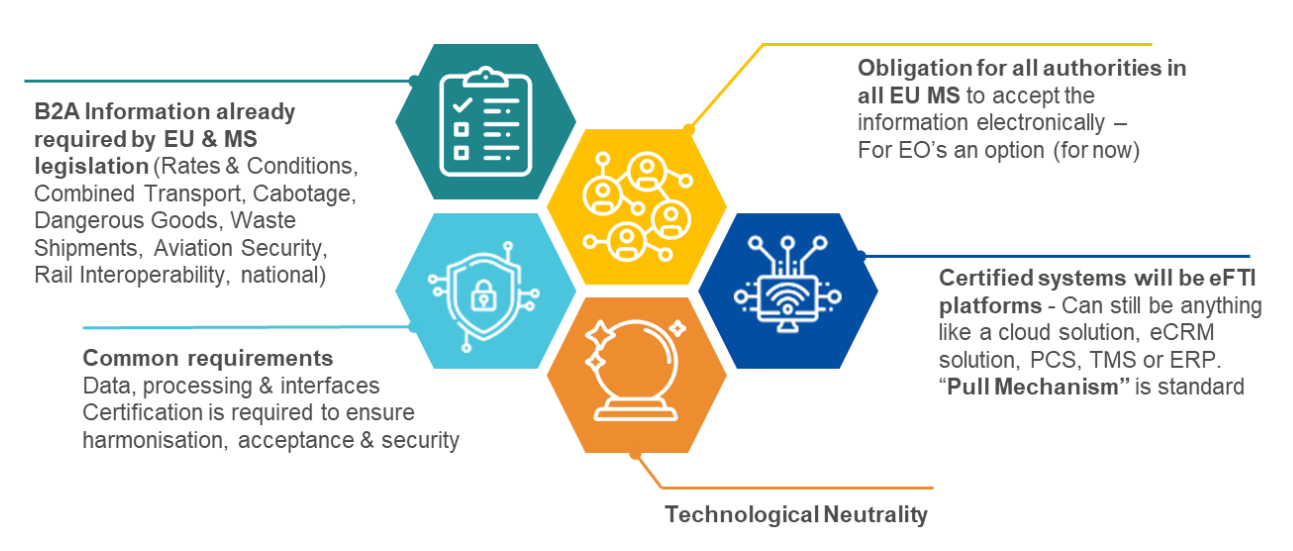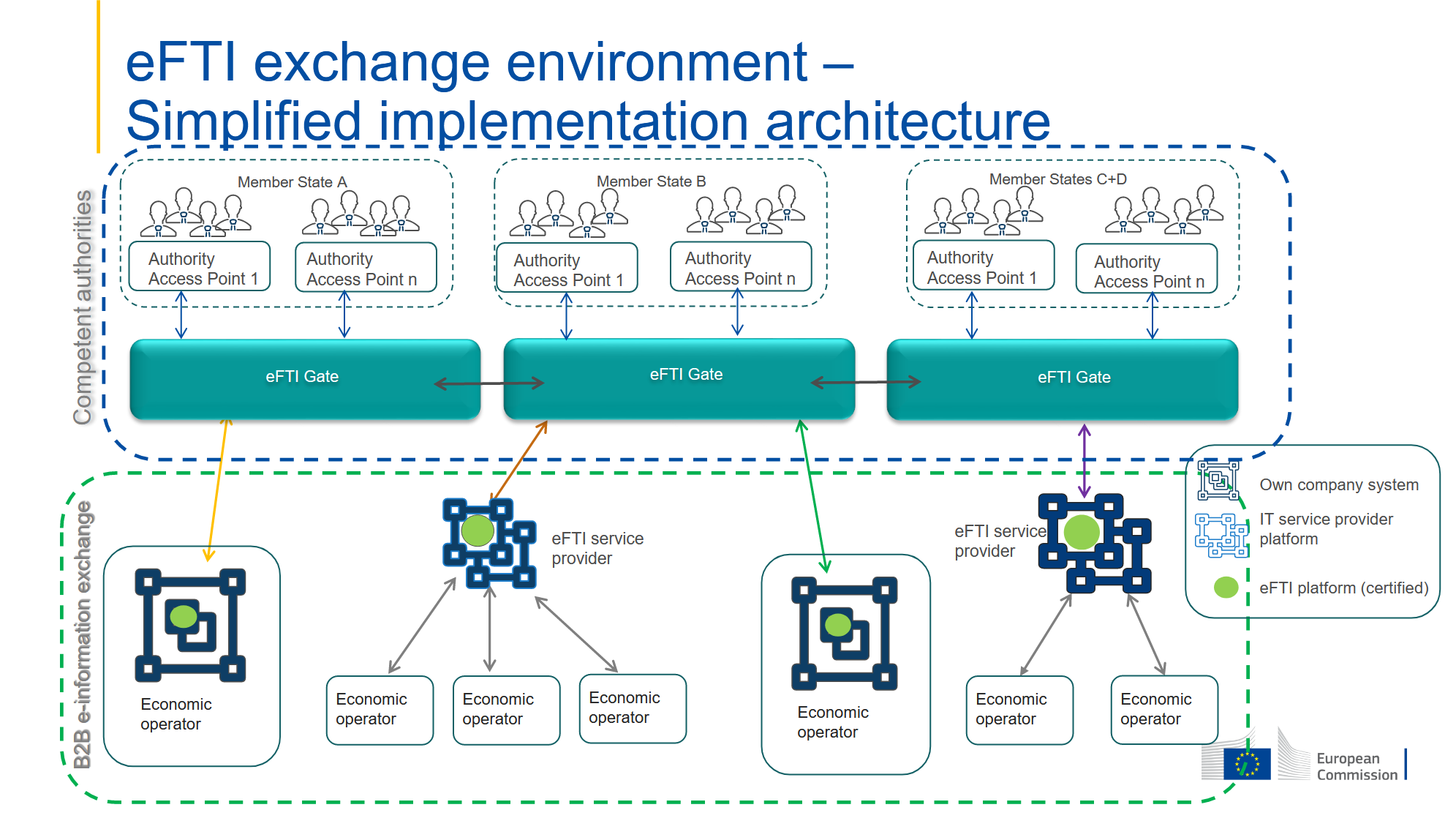Simplifying Freight Transport with Digitalization
On the 15th of July 2020, the European Parliament and the Council of the European Union (EU) approved the new Regulation on electronic freight transport information (eFTI)1. The aim of this Regulation is to encourage the digitalisation of freight transport and logistics to reduce administrative costs, improve enforcement capabilities of competent authorities, and enhance the efficiency and sustainability of transport.
In order to quickly provide a fully interoperable system for the safe and secure exchange of freight information between businesses and authorities, we stress the need to strengthen cooperation towards an electronic Consignment Note (e-CMR) data exchange scheme that will allow cross-border control of digital transport documents in a secure and trustable way.

FOUR main pillars of the Electronic Freight Information Directive (eFTI)
By addressing these pillars, the eFTI directive aims to modernize and streamline freight information processes, enhance efficiency and transparency, and facilitate cross-border trade in the European Union.
Standardization
The eFTI directive aims to establish common standards for the electronic exchange of freight information. It promotes the use of standardized formats, protocols, and data elements to ensure interoperability and seamless communication between different stakeholders in the freight industry.
Digitalization
The eFTI directive encourages the digitalization of freight information processes. It promotes the use of electronic documents, such as electronic transport documents, electronic customs declarations, and electronic proof of delivery. This digitalization improves efficiency, reduces paperwork, and enables real-time tracking and visibility of freight shipments.
Legal Recognition
The eFTI directive focuses on ensuring the legal recognition of electronic freight information. It establishes a framework for the acceptance and validity of electronic documents and signatures in the context of freight transport. This pillar provides legal certainty and facilitates the transition from paper-based to electronic processes.
Security and Data Protection
The eFTI directive emphasizes the need for security and data protection in the electronic exchange of freight information. It sets out requirements for authentication, integrity, confidentiality, and non-repudiation of electronic documents. This pillar aims to safeguard sensitive freight data and protect it from unauthorized access or manipulation.

